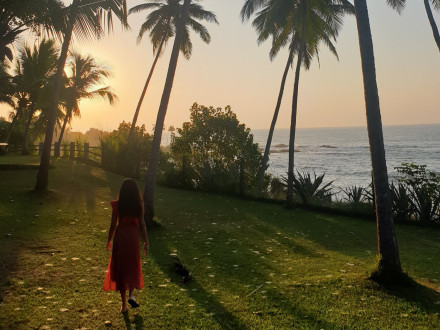How did a girl from Sri Lanka end up in Prague? What advice would she give to aspiring postgraduates and foreign students? Why did she choose the Second Faculty of Medicine and specialise in paediatrics? What was the most difficult part of her studies here? What are the hot topics in paediatrics today? Interview with Dr Shenali Amaratunga, PhD, who has been living in the Czech Republic for almost 12 years.
You were born and raised in Sri Lanka. How on earth did you end up in Prague?
It is difficult to get into medical school in Sri Lanka. It's an Asian mindset of parents wanting their children to be doctors, lawyers, and engineers. Many parents push their children to go into medicine, and there are no entrance exams like in the Czech Republic. There is a countrywide exam at the end of high school, similar to the Czech maturita. Based on the result, there is a grading system for students in the whole country. I missed the mark for medicine by a very short margin, so I could have gone for dentistry or veterinary science, but I really wanted to be a doctor, and I could have tried to repeat the exam in one year, but I was scared. “What if I miss it again by a few points?” I was thinking.
Then I started considering going abroad and when I looked at where I could study in English, countries like Australia, the US and the UK were extremely expensive and there were no scholarship programmes. Then I checked with the Sri Lankan Medical Council to see what degrees they recognise and that is how I came across Charles University.
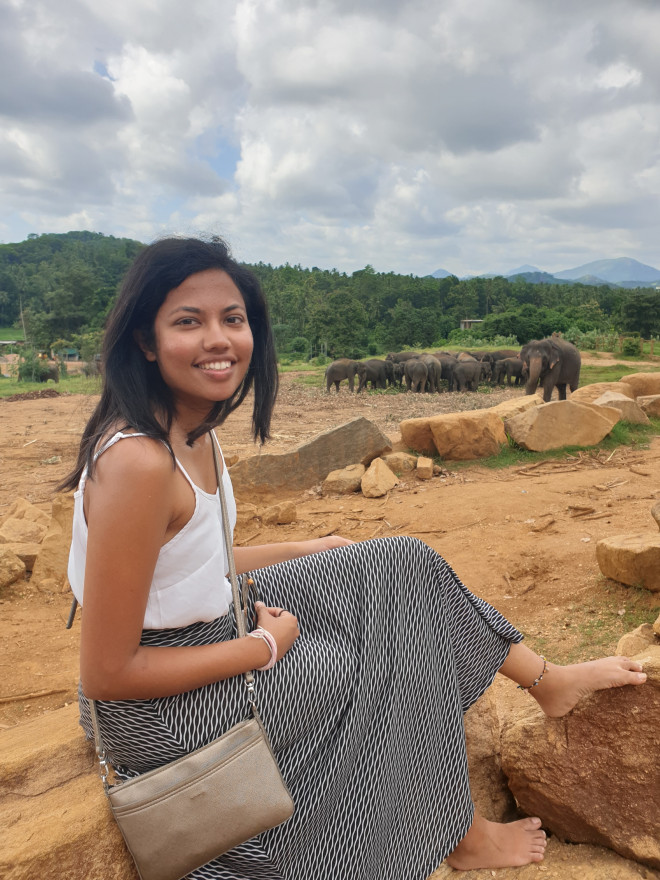
How did you choose the Second Faculty of Medicine?
Initially, it was a bit confusing to find out in what regard the three faculties were unique. But after some research, I found out that the Second Faculty of Medicine is supposed to be more “family-oriented”, with small class groups, and that it used to be a paediatric faculty. And I always wanted to do paediatrics. Then the biggest deciding factor was that the Second Faculty, and I think they still do this, gave the best international students of the year an option to get half of their tuition fee back, or they would not pay at all for the following year.
I found out that the Second Faculty of Medicine is supposed to be more “family-oriented”, with small class groups, and that it used to be a paediatric faculty.
In Sri Lanka, many students go through agencies to nearby countries like Nepal, India and China. I decided that if I wanted to go abroad, I wanted to go somewhere where I wouldn't be in my comfort zone. Likewise, I wanted to meet new people from different cultures, and didn’t want to be with 50 other people from my country and just be in my comfortable bubble. That's why I chose to come to Prague by myself.
And what was it like to study here? What was your most difficult experience?
Med school is difficult – that's a well known fact, but it gets easier with time. The most difficult part was adapting to the Czech system. I think most students outside of Central Europe or the Czech Republic are not used to oral exams. And the fact that we had very theoretical subjects with oral exams, for example histology with an oral exam, or anatomy with an oral exam took some time getting used to.
I think most students outside of Central Europe or the Czech Republic are not used to oral exams.
But overall, I would say that the studies were well organised. The first two, three years were, of course, the most difficult because you have the big subjects like anatomy, histology, pathology, one after another. Every year, there is at least one big hurdle you have to pass. So, of course, it's constant stress. But you have classmates from different countries and you're going through these things together. It kind of connects you.
And then, if you manage everything on time, you have the summer off. And I got to be home for the summer for two or three months every year, which was very nice.
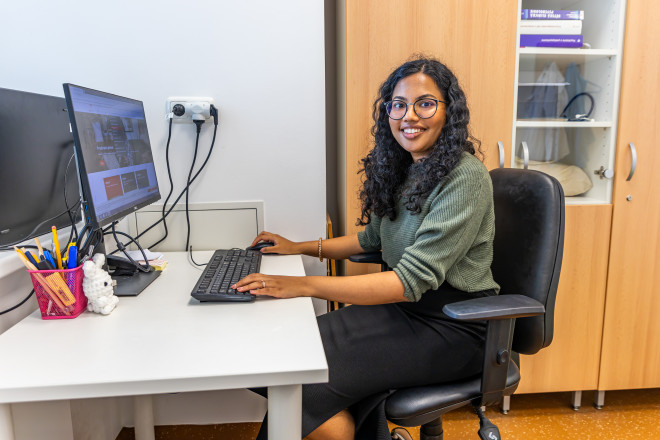
And what was the most bizarre experience?
It happened a few months after my arrival, there was no Bistro Motol back then. There weren’t any cool cafes. There was a restaurant in the adult building, in the atrium. And we used to go there in the mornings, when we had a gap between subjects, in the morning to have breakfast or a snack. I was a naive 18–19 year old girl from Sri Lanka, and I saw people having breakfast at, say, 10:00 a.m. with something that looked like apple juice but with foam on top of it. And people were like, "No, it's beer." It's weird having beer in a hospital in the morning.
I saw people having breakfast at, say, 10:00 a.m. with something that looked like apple juice but with foam on top of it. And people were like, "No, it's beer." It's weird having beer in a hospital in the morning.
Why did you opt for the PhD in Prague?
I wasn’t always planning on doing a PhD. But when I got offered a job in the Paediatric Clinic, I was offered a PhD topic that seemed very interesting with an enthusiastic supervisor. So, I thought, “Why not?” Because I have always been interested in research and I’m a chronic multitasker. And within the first few months I knew it was the project for me. I completed my PhD in February this year. I'm now continuing with some other projects. Therefore, thanks to the PhD, this immense world of research has opened up to me and I'm grateful for that.
Do you have any insights from other countries? I'm talking about the balance between clinical work and research while doing a PhD.
It's quite rare to be able to do clinical work and research at the same time in the same workplace. As far as I know, people in the UK or in the US, have to choose one or the other. Doctors usually do a two-year PhD right after med school, and then they go into their specialisation training. So you usually first do one, then do the other. But doing both is not very encouraged.
And here it's very much encouraged. It's a lot to handle, doing specialisation, the atestace, and PhD at the same time. But if you're given the time, the resources and support, I think it's a very good opportunity to get involved in both. In my opinion, good research makes you a better clinician and the other way around.
Why did you choose paediatrics?
I always wanted to do paediatrics. My whole life I wanted to be a doctor since I was about eleven years old, and then since about 14, I always wanted to do paediatrics, work with children. And every time I thought about not being a doctor, I thought, “OK, then I'll do something else and go work at UNICEF or the World Health Organisation.” It was always something to do with health and children. During med school, I once or twice changed my mind. But in the 6th year, we had a bigger block of four subjects: surgery, internal medicine, paediatrics and gynaecology. We had a two and a half month block of paediatrics and I affirmed by decision that this is what I wanted to do.
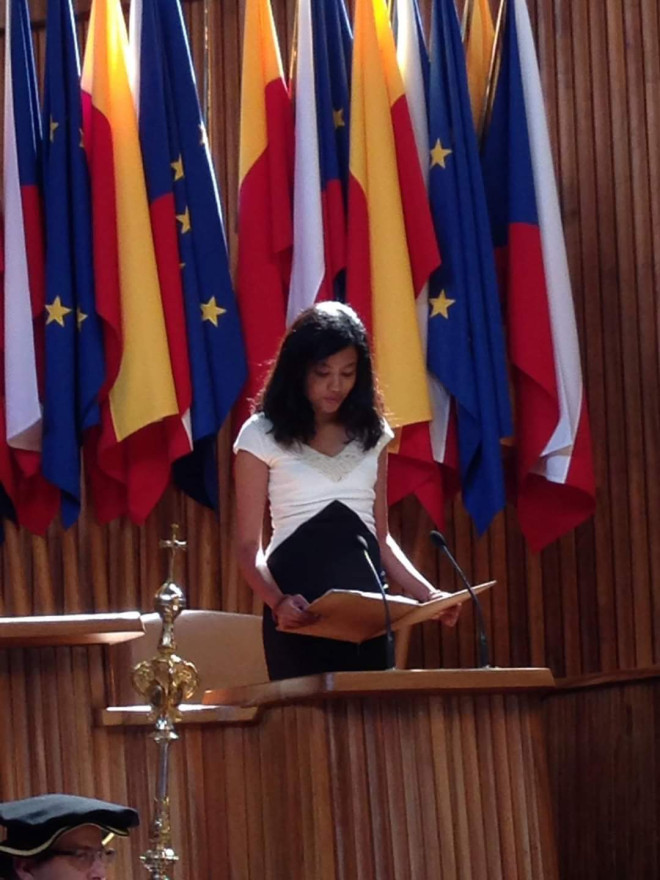
What topic do you focus on?
I am currently focused on paediatric endocrinology, and a little bit of clinical genetics. This is thanks to my PhD, which was on a topic combining genetics and endocrinology.
I am currently focused on paediatric endocrinology, and a little bit of clinical genetics.
What did you concentrate on during your PhD?
I was looking at genetic causes of rare endocrine conditions in short stature and monogenic diabetes.
What are the major paediatrics topics at the moment? And where do you think that the whole of paediatrics is heading now?
Paediatrics, and I think medicine as a whole is moving a lot towards precision medicine. This means looking at patients as a whole, doing diagnostics properly, not just blood tests, but also genetic tests and screening programmes to know what you're dealing with even before the child reaches a certain age.
And the other new, hot topic, I would say, is AI in medicine. In my specific field of paediatric endocrinology or diabetology, there's a lot of talk about AI powered retinal scans. Diabetics need to have regular eye checkups for diabetic complications and AI can look at those retinal scans and see even the tiniest or new changes that the ophthalmologist can’t detect yet.
Paediatrics, and I think medicine as a whole is moving a lot towards precision medicine. And the other new, hot topic, I would say, is AI in medicine.
What advice would you give to international students that want to start studying here at the Second Faculty of Medicine, or to aspiring international PhD students?
To medical students, I would say don’t get overwhelmed and scared easily, because it's going to be a lot at once: new place, new culture, new language, new system of exams, if people aren't used to oral exams. Just to persevere. Everything takes time to get used to.
One tip from personal experience is not to miss Freshers' Week, which is organized by the older students before the start of the first week of classes every year. I got my visa late and unfortunately missed this week. I felt the disadvantage of missing it because you meet your future classmates during this week and get to know important information about life in Prague, how to buy a tram ticket, how to open a bank account, tips on how to study, these kinds of things. Connections with peers are very important, specially to get through the beginning.
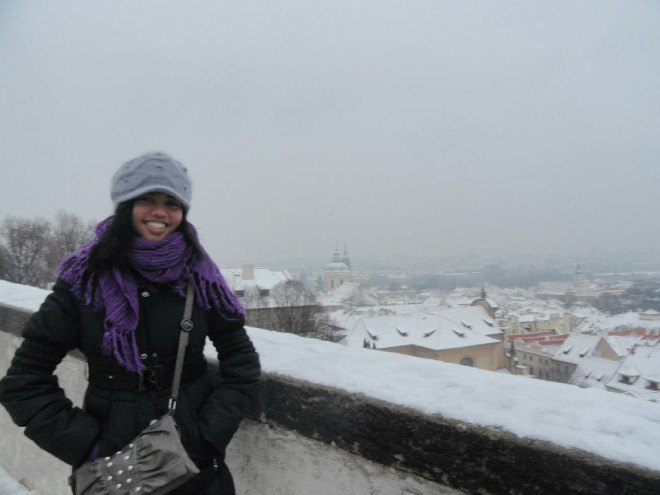
And then for future PhD students, especially if they're going to do clinical work with the PhD, it's going to be hard, but it's also manageable and it's just about finding that balance, getting that lab time as well as the clinic time. And it's also advisable, if you're thinking about doing a PhD, to try to also get involved in some research projects as an undergraduate. I was doing some research with a professor in my second year in pathophysiology and I think that also helped me to get a better understanding of how a project works, basic lab working, writing an abstract etc. Specifically for international PhD students, I’d definitely encourage applying even if you don’t speak Czech. The world of research is in English so if you find a project that interests you, don’t hesitate to reach out to potential supervisors. Basic knowledge of Czech will be necessary for lab work and living here, that’s obvious, but the whole PhD can be done in English including exams and defense.
To medical students, I would say don’t get overwhelmed and scared easily. Just to persevere. Everything takes time to get used to.
I know that you speak Czech now. Can you describe the process of how you achieved that?
In the first three years, and this is important for future medical students, there are going to be Czech lessons. The first two years are theoretical Czech: general grammar rules, general vocabulary. And then in the 3rd year, you are taught medical Czech, vocabulary, some sentences, so you can manage a conversation when you go to see patients. All of that was really helpful for me to get a basic knowledge of Czech.
Then from the 3rd year to the 6th year you don't have classes but you are in contact with patients. So it's not so difficult for students to keep in touch with medical Czech. But I had the feeling that I had lost a bit of my general Czech vocabulary. That's why it's important to make some Czech friends and try to communicate with people whenever you can.
When I decided that I will stay in Prague, what helped me the most was reviewing all of the material I had from the first two years and I started watching my favourite TV shows and movies in Czech with English subtitles. This and listening to the radio helped me to learn some general phrases. Because if you learn from a textbook, you don't know how to react.
And then, of course, the biggest improvement was when I started working because when you are in a Czech environment, for eight hours a day, every day, reading in Czech, having to write in Czech, listening and speaking in Czech, you learn fast.
After about a year I started to hear my own mistakes when I was speaking. I remember that the one-to-one conversations were always fine. You know you can switch to English or use an English word when you need to. But in a group conversation for the first few months I was a silent participant, just listening and trying to understand. But you can't jump in because by the time you think of something to say, the conversation has moved on. The feeling of being comfortable in the language or being able to tell a joke in the language came after about a year and a half.
Související
When I Moved Here, I Was Barely 19. I Had Never Been to Europe.
Czech-Sri Lankan Special with Dr Shenali Amaratunga, PhD., who came to the Czech Republic from Sri Lanka almost 12 years ago.

